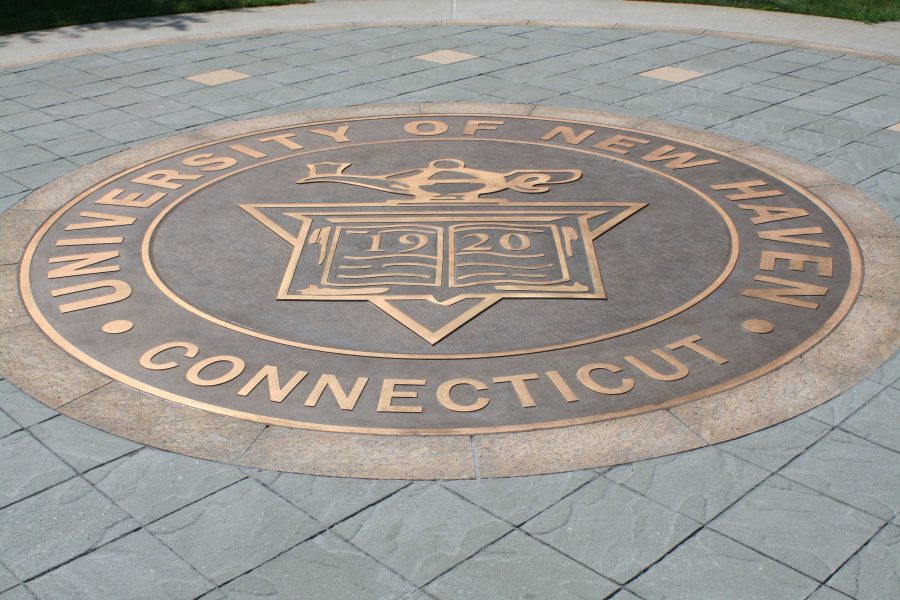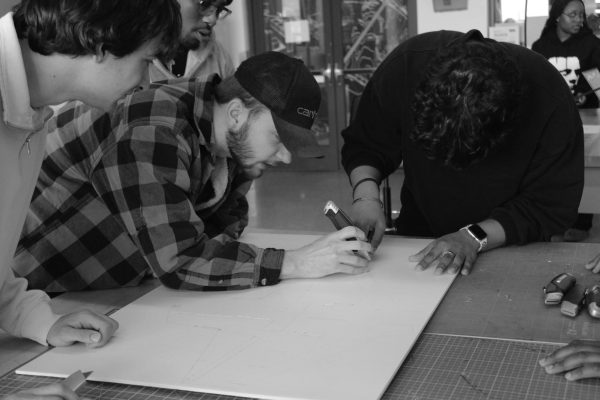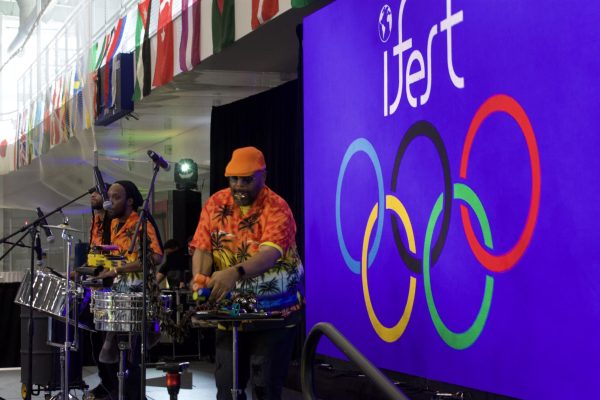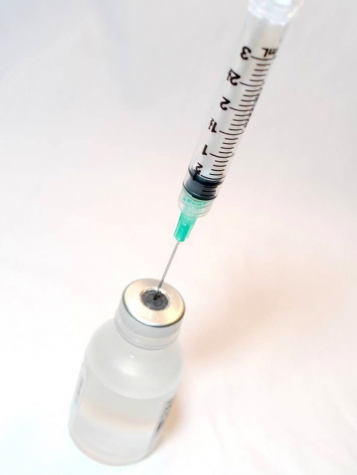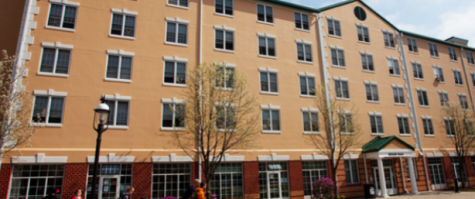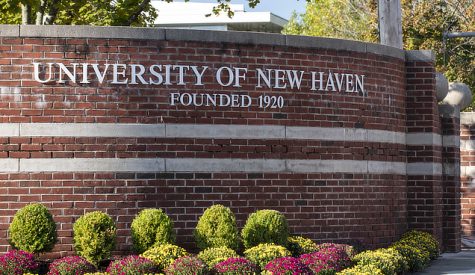Students reflect on the fall semester
Courtesy of The Charger Bulletin
The new UNH logo that can be found in front of Maxcy Hall
This was a semester like no other. Students had to adjust to campus life amid a pandemic. This called for new guidelines such as online or hybrid classes, online events and limited social interaction.
Since the beginning of the semester, the university was vocal about strict COVID-19 guidelines, but also understanding the challenges this new climate brought. The university increased student resources, implemented “re-charge days” which canceled classes for those select days, brought in food trucks and hosted online events. While the university’s effort was there, students have mixed feelings on how their semester went and how the university did at modifying campus life.
Junior communications major Emily McDonough said she believes that the university did well enforcing COVID guidelines and that she felt safe on campus after seeing how active the sanitation team is. Still, McDonough said that the semester brought challenges with how little she could see her friends.
“There were times during the semester where I was questioning why I moved back to campus because I was just taking all my classes in my dorm,” said McDonough. “I also felt that professors were assigning more work than usual which stressed me out because I constantly feel behind.”
Communications senior communication major Kelly Nelson also said that she felt that compared to other universities, the University of New Haven was prepared to deal with COVID. Nelson said that she felt safe while on campus and was glad that all students living on-campus could remain until the end of the semester.
Alec Baez, a senior biology major and commuter student, said that for the most part, he believes the university handled the spike in cases well. However, he thought that the university should have conducted more random testing.
“I would’ve liked to see a larger sample of campus be called for asymptomatic testing each week from the start, rather than increasing the testing as cases increased,” said Baez.
“I think the university did a great job keeping us in person for a large portion of the semester, but I feel like I could barely trust fellow students based on what I was seeing on social media,” said Baez. “I understand that it’s not representative of the whole campus, but I wasn’t surprised by the outbreak based on what I saw.”
Baez said that in his previous years at the university, he tried to spend as much time on campus as possible, but that it was difficult this semester. While he could come once a week for the food trucks, there were other parts of campus life he missed.
“I was looking forward to joining [Tri-beta] and maybe a club for the first time in my last year here, but my job and the workload of my mix of in-person and online classes makes me think I can’t manage that this semester,” said Baez.
Junior forensic science major Rachael Malizia said that she hopes to see more reliable, on-time updates to the COVID dashboard and for the university to hold more outdoor events. Malizia said she needed to be quarantined for three days until a family member’s test results came back. Malizia said that after the test came back negative she contacted multiple university offices about leaving quarantine, but none replied. She said it was not until she made a post on the university’s Facebook group page that a faculty member answered and she was allowed to leave quarantine.
“There should definitely be an easier way to get out of quarantine,” said Malizia. “My suggestion, again, would be to have a person within the COVID taskforce/Office of Residential Life who can easily be contacted with the results of a negative COVID-19 test so that students can get out of quarantine faster.”
What the spring semester will be like is unpredictable. While the university is intending to have in-person and hybrid classes again, it all depends on the status of COVID-19 in late January.
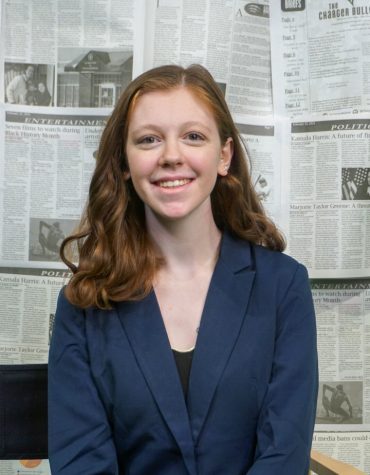
Beth Beaudry is a senior majoring in communication with a double concentration in journalism and public relations, and a minor in English. This is her...



